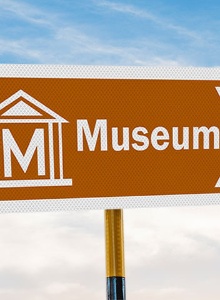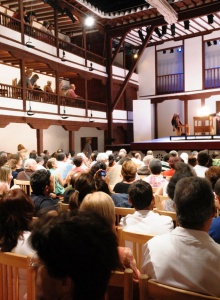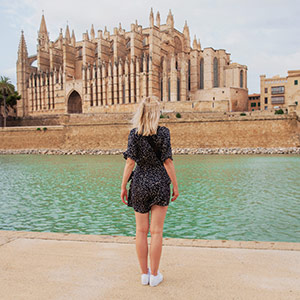Almagro is located in the province of Ciudad Real, in the region of Campo de Calatrava, and has been recognised as being home to historic and artistic heritage. The history of this town in La Mancha is closely linked to the history of theatre, as can be seen in its Corral de Comedias theatre, the National Theatre Museum and the International Festival held here every year.
Almagro, the capital of the Campo de Calatrava region, was closely linked to this religious order, which was of major political significance during the Late Middle Ages. King Ferdinand II of Aragon merged the assets of this military order into the crown of Castile, marking the beginning of the decline of the Calatravan knights, but not of the city. Bankers under Emperor Charles V, such as the Fuggers and the Welsers, settled in the region, contributing to the development of Almagro.
Historic quarter
As is the case of most towns in Castile, its nerve centre is the Plaza Mayor square. This rectangular construction is encompassed by stone arcades and two-story wooden balconies. It is home to Almagro's most emblematic monuments, including the Corral de Comedias theatre, the National Theatre Museum and the town hall.The Corral de Comedias theatre, declared a National Monument, dates back to the 16th century and is the classic space at which plays were performed during the Spanish Golden Age. Its galleries, stage and dressing rooms are open to visitors, as well as playing host to the International Classical Theatre Festival each year. Hospital de San Juan, the Municipal Theatre, the Patio de los Fúcares palace, and the Cloister of the Dominicans also set the scene during approximately one month to transport visitors to Almagro back to the times of Lope de Vega, Tirso de Molina or Calderón de la Barca.A typical Manchegan stately house is home to the National Theatre Museum, which exhibits interesting collections on stage design, eighteenth-century theatrical costumes, model theatres and a comprehensive pictorial and musical archive. In turn, the Town Hall houses a Roman tombstone from Granátula de Calatrava.Taking a stroll through the Noble district takes visitors back in time to the golden age. Here, you can admire the emblazoned houses of the Mayorazgo de los Molina, Casa de los Rosales, Casa del Prior or Casa del Capellán de las Bernardas. Examples of Manchegan palace architecture include: Palacio del Maestral, Palacio de los Marquises of Torremejía or Palacio de los Condes de Valparaíso. The Fúcares grain and mercury warehouse is also referred to as a palace on account of the quality of its construction.Almagro is also home to important religious buildings including the churches of San Bartolomé (Jesuit), San Agustin (declared a property of cultural interest), or Madre de Dios. The convents of La Encarnación and La Asunción de Calatrava (Historical-Artistic Monument) reflect the importance of the ecclesiastical establishment in the city. The former Convent of San Francisco is now the Parador de Turismo de Almagro. Stone, brick, wood and latticework are the main elements the courtyards and rooms in which regional history is palpable. The local gastronomy includes migas (made using bread crumbs), tiznao (cod stew), pisto (vegetable stew)... As well as Manchego lamb, Almagro aubergines and wines from La Mancha or Valdepeñas, all of which have a designation of origin.
Campo de Calatrava
Campo de Calatrava is home to castles, palaces and towns of major historical and artistic importance, including El Viso del Marqués, Almuradiel and Calzada de Calatrava. In turn, Campo de Montiel houses the mediaeval remains of Montiel as well as towns including Villanueva de los Infantes and Villamanrique.From Almagro, visitors can discover the lagoons and islets of Tablas de Daimiel National Park or Lagunas de Ruidera Natural Park, an important wetland in Castile-La Mancha.The spas in Fuencaliente and Santa Cruz de Mudela offer visitors excellent thermal facilities to treat themselves.

















